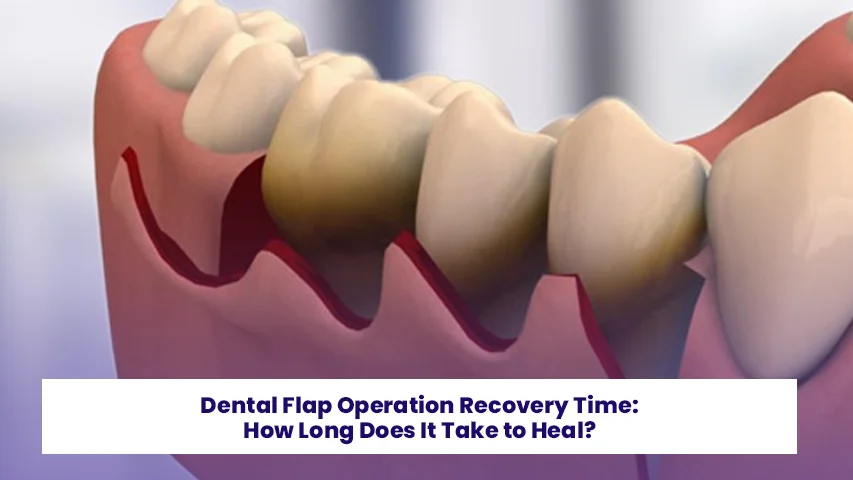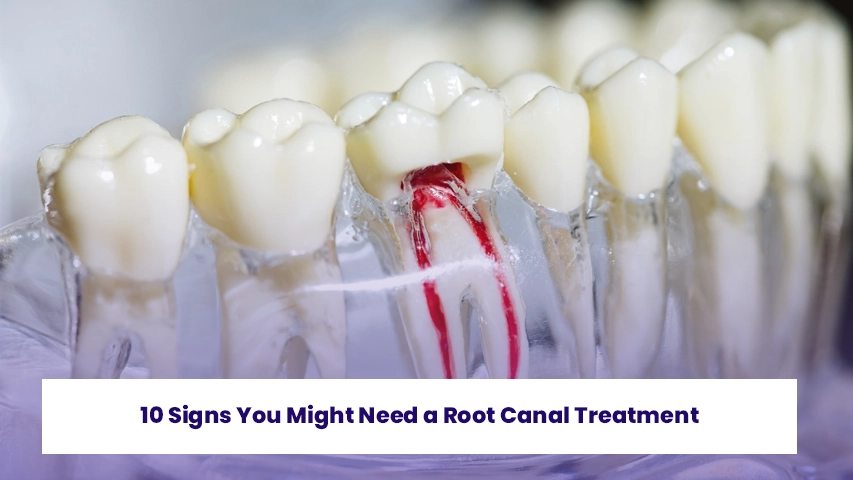
Zirconium vs. Porcelain Crowns: Which Is Best for Your Dental Needs?
9 January 2025
Tooth Extraction and Simultaneous Dental Implant Procedures
21 February 2025What Are the Best Treatments for Tooth Sensitivity?
Tooth sensitivity is a common dental concern that affects millions of people worldwide. If you’ve ever experienced a sharp, sudden pain when drinking a hot cup of coffee or biting into a cold ice cream cone, you’re familiar with how uncomfortable and frustrating tooth sensitivity can be. Exploring the best treatments for tooth sensitivity is essential to restore comfort and improve your ability to enjoy your favorite foods and beverages, enhancing your overall quality of life.
Sensitive teeth occurs when the protective layers of your teeth are compromised, exposing the sensitive inner layers (dentin) to external stimuli. This can lead to pain or discomfort when consuming hot, cold, sweet, or acidic foods and beverages. Fortunately, there are effective ways to manage and treat tooth sensitivity, allowing you to regain comfort and confidence in your smile.
In this blog, we will explore the causes of tooth sensitivity and discuss the best treatments available. From at home remedies to professional dental interventions, we’ll provide a comprehensive guide to help you find the relief you’re looking for.

Causes of Tooth Sensitivity
Understanding the root causes of tooth sensitivity is essential for finding the most effective treatment. Below are some of the common factors that contribute to this dental issue:
1. Worn Enamel
The enamel is the hard, outermost layer of your teeth that protects the inner layers. Over time, enamel can wear down due to:
- Aggressive brushing with a hard bristled toothbrush
- Consuming acidic foods and beverages
- Teeth grinding (bruxism)
2. Gum Recession
Receding gums expose the roots of your teeth, which lack the protective enamel. This can increase sensitivity, particularly to temperature changes.
3. Tooth Decay and Damage
Cavities, cracked teeth, and worn fillings can leave sensitive areas exposed, leading to discomfort.
4. Teeth Whitening Products
Frequent or excessive use of whitening products can irritate the enamel and dentin, causing temporary sensitivity.
5. Dental Procedures
Recent dental treatments, such as fillings, crowns, or cleanings, may cause temporary sensitive teeth. This typically subsides within a few days.

Best Treatments for Tooth Sensitivity
If you’re wondering how to treat sensitive teeth, the good news is that there are numerous solutions available. Exploring the best treatments for tooth sensitivity can help you find relief through at home remedies, over the counter products, or professional dental treatments tailored to your needs.
1. Desensitizing Toothpaste
Desensitizing toothpaste is specifically formulated to reduce tooth sensitivity by blocking the pathways that transmit pain signals from the tooth surface to the nerve. Look for products containing active ingredients like potassium nitrate or stannous fluoride. Use it consistently for several weeks to see significant improvements.
2. Fluoride Treatments
Fluoride is a mineral that strengthens enamel and helps prevent tooth decay. Dentists often recommend fluoride treatments to reduce sensitivity and protect vulnerable areas. These treatments can be applied in office as gels, foams, or varnishes.
3. Proper Brushing Techniques
Adopting the right brushing habits is crucial for managing sensitive teeth:
- Use a soft bristled toothbrush.
- Brush gently in circular motions to avoid wearing down enamel or irritating gums.
- Opt for a toothpaste designed for sensitive teeth.
4. Dietary Changes
Limiting your consumption of acidic foods and beverages (e.g., citrus fruits, soda, and wine) can help protect your enamel and reduce sensitivity. If you do consume acidic items, rinse your mouth with water afterward to neutralize acids.
5. Dental Sealants
For more severe cases of sensitivity, your dentist may apply a sealant to cover exposed dentin and block pain causing stimuli. This treatment is particularly effective for areas affected by gum recession.
6. Mouthguards for Bruxism
If teeth grinding is contributing to your sensitivity, wearing a custom fitted mouthguard can protect your teeth from further damage.
7. Professional Dental Interventions
In cases where sensitivity is caused by decay, damage, or severe gum recession, professional dental treatments such as fillings, crowns, or gum grafts may be necessary to address the underlying issue and provide relief.

At Home Remedies for Tooth Sensitivity Relief
Finding ways to alleviate sensitive teeth at home can be a practical first step for immediate relief. These remedies are simple yet effective, making them ideal for managing discomfort while exploring more long term solutions. Below, you’ll find some tried and true methods to help soothe sensitive teeth and promote overall oral health.
If you’re looking for immediate relief from tooth sensitivity, try these at home remedies:
- Saltwater Rinse: Rinsing your mouth with warm saltwater can reduce inflammation and promote healing.
- Clove Oil: Applying clove oil to the affected area can provide temporary pain relief, thanks to its natural numbing properties.
- Avoid Temperature Extremes: Stick to lukewarm foods and beverages to minimize discomfort.
- Hydration: Drinking plenty of water helps maintain saliva production, which protects your teeth and gums.
Preventing Tooth Sensitivity
Preventing tooth sensitivity is often easier than treating it. Practicing good oral hygiene is the foundation for maintaining healthy teeth and gums. Brushing and flossing daily helps prevent plaque buildup and reduces the risk of gum disease, which can lead to sensitivity. Using proper techniques, such as brushing gently with a soft bristled toothbrush, ensures you protect your enamel and gums.
Regular dental checkups are also essential. Visiting your dentist every six months allows them to identify and address potential problems early, ensuring your teeth remain in optimal condition. Routine cleanings can help prevent tartar buildup and gum recession, both of which contribute to sensitivity.
Incorporating fluoride products into your daily routine can further strengthen your enamel. Fluoride toothpaste and mouthwash offer an additional layer of protection against decay and sensitivity. At the same time, it’s important to avoid overbrushing, as aggressive brushing can wear down enamel and irritate your gums, leading to increased sensitivity.
Lastly, protect your teeth during activities that pose risks. If you grind your teeth at night, wearing a mouthguard can prevent enamel damage. Similarly, using a mouth guard during sports can protect your teeth from injury, preserving your oral health and preventing sensitivity.
When to See a Dentist
If your sensitive teeth persists or worsens despite trying at home treatments, it’s time to consult a dentist. Persistent sensitivity may indicate an underlying issue, such as advanced decay or gum disease, that requires professional attention.
A visit to the dentist allows for a thorough examination to identify the exact cause of your sensitivity. The dentist may use tools such as Xrays or a visual inspection to pinpoint areas of concern, including cavities, fractures, or gum recession. Identifying the root cause is the first step in developing an effective treatment plan.
Your dentist can also offer tailored treatments to address the sensitivity. These might include applying fluoride varnishes, performing dental bonding, or recommending advanced procedures like root canals in severe cases. The goal is to treat the underlying problem, not just alleviate the symptoms.
Regular dental checkups are crucial for maintaining long term oral health. Even if your sensitivity subsides, periodic visits help prevent recurring issues and ensure your teeth remain strong and healthy. Don’t hesitate to schedule an appointment if you suspect that your sensitivity is linked to a deeper dental problem.
Restoring Comfort and Confidence
Sensitive teeth is more than just a minor inconvenience; it can significantly impact your daily life and overall happiness. However, with the right approach, it’s a condition that can be effectively managed or even eliminated.
From simple lifestyle changes to professional dental interventions, there are numerous options available to alleviate sensitivity. Incorporating desensitizing toothpaste, improving your oral hygiene routine, and seeking timely dental care are all essential steps toward lasting relief.
Remember, your oral health is an integral part of your overall wellbeing. By exploring the best treatments for tooth sensitivity and adopting preventive measures, you can enjoy a pain free smile and the confidence that comes with it. If you’re struggling with persistent sensitivity, reach out to a dental professional for guidance and support.













